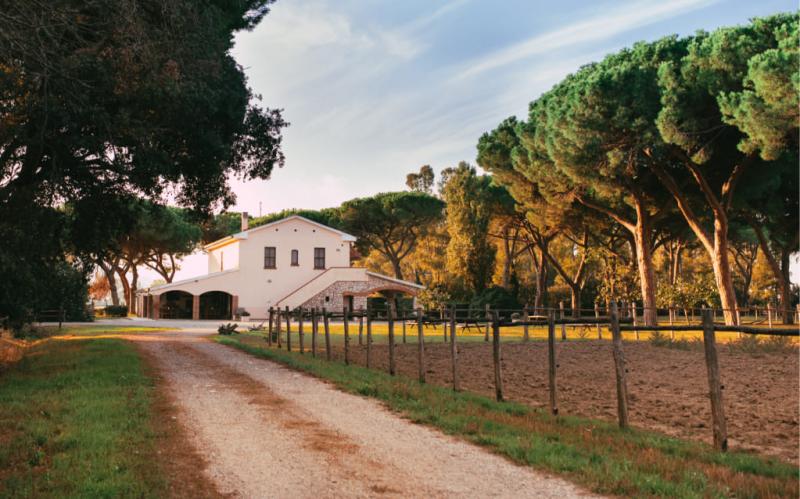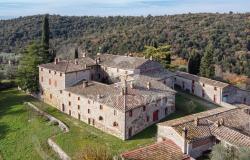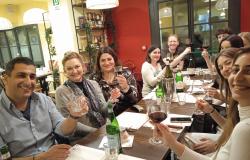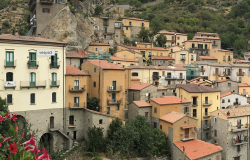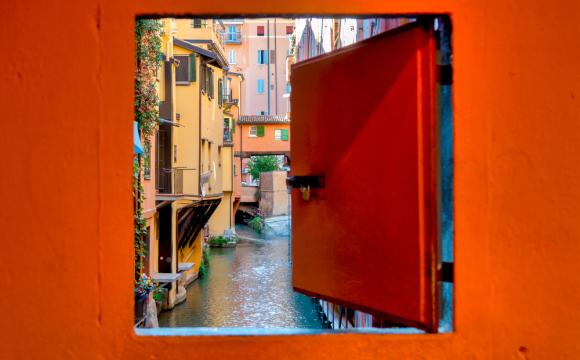The summer crowds in the streets of Italy’s main hotspots can’t tell you everything about the current state of travel. Despite the high rates of “revenge tourism” Italy is seeing post-pandemic, slower forms of travel are trending, too. Many travelers have newfound clarity after Covid, with no intentions of going back to the “old” normal. They’re spending longer periods in single destinations, engaging with locals and reconnecting with nature.
Italy was a dream destination in the “before times,” with Rome, Florence and Venice topping the charts of the world’s most visited places. But what about now?
Sure, those cities are still the main players, as the long lines snaking around the Colosseum or the Uffizi demonstrate. But an ever-growing contingent of travelers is bucking those big hitters and opting for wild, idyllic countryside — for exploring the landscape that actually constitutes most of Italy.
Agriturismo travel: a hotel alternative-turned-hot commodity
The country’s plethora of farmstays — agriturismi — provide a point of entry for many travelers who wouldn’t otherwise have access to this side of Italy. These fully-functional farms have guest rooms or cottages where visitors can stay and see sustainable farming in action.
Once a super-niche traveling style, agriturismo stays are growing in mainstream popularity among Europeans and even Italians themselves. The prominent Italian fashion influencer and businesswoman Chiara Ferragni was recently spotted at Ferdy, an agriturismo in Lombardy that has become known for hosting Italy’s elite.
But what’s “trendy” isn’t really part of the traditional agriturismo model. At an agriturismo, everything’s intimate and slow, not showy and Instagrammable. Guests get to go straight to the source of Italy’s mouthwatering products — and meet the very families and farmers who are making them.
“It makes sense that the farms that grow all this food [should] have a way to connect directly with people, who are visiting not only the farm but a whole rural landscape,” says Ariane Lotti, the Italian-American owner-operator of Tenuta San Carlo, an organic rice farm and agriturismo in Tuscany’s coastal region of Maremma. “Agritourism [travel] is perfect for Italy because Italy has such a strong food identity.”
And that food identity is the common thread through all agriturismi, no matter their target clientele. The experiences are for those who want to go beyond tasting food to learn how it is produced, processed, and ends up on your plate.
A “choose your own adventure” holiday
Most agriturismi offer tours and classes, where farmers show visitors how they manufacture and process their products. Of course, these always involve tastings!
From horseback riding to truffle hunting, and skiing to cooking classes, the available activities at any given agriturismo depend largely on the farm’s location — not to mention the overall focus of the farm itself. At Tenuta San Carlo, for example, Lotti, who left an agricultural policy career in D.C. to rejuvenate the family farm she and her sister inherited, gives daily tours offering insight into rice production — from planting to processing to reaching-the-pantry phase. Having turned San Carlo certified organic, Lotti is currently exploring regenerative agricultural practices and devising solutions for how the farm can respond to climate change, all of which she expounds on in her tours, offering agriturismo guests a memorable experience while spreading awareness of her mission. Everyone wins.
When staying at an agriturismo, the operations and focus of the place will certainly have an impact on your experience. But you’re never limited to spending all your time on the grounds: Your host also doubles as a local expert, sure to tip you off on the best sights to see and the tastiest gelati in the area.
Connecting with Italian families and rural communities

Though an influx of tourism to rural farming communities is never without nuance and complications, there are clear benefits (and not just for the education of the short-stay visitors). Host communities are often brought closer together as they work out how to best represent their region to agriturismo-goers, according to Elizabeth Thacker Jones, bespoke travel planner of Risotto & Steel and marketing director of Tenuta San Carlo.
“Visitors’ curiosity prompts us to interact and get to know our neighbors and supply visitors with the best authentic experience outside of the farm, in addition to inside the farm,” Jones explains. “We have to be engaged not only in [our] day-to-day, but in the bigger picture.”
“Agriturismo has given a lifeline to many farms in Italy,” Lotti agrees. “[It] has been fundamental to the survival, development, and future of rural areas in Italy.”
Farm first, farm stay second
Ironically, agriturismo models have helped communities and individual farms flourish precisely because hospitality is not a farm’s sole or even primary concern. The agriturismo concept is designed around the principle of farm first, farm stay second. These are workplaces that support families’ livelihoods. Opening the farms to visitors is a way to diversify income streams so that farmers have something to fall back on if they have a bad harvest.
While some farms allow guests to engage in agricultural activities like harvesting crops, tending to animals or participating in traditional farming practices, the only requirement at all farms is that you respect the land you stay on. Staying at an agriturismo in Italy does not involve any volunteer work or labor-for-lodging, distinguishing it from the experiences offered by networks like World Wide Opportunities on Organic Farms (WWOOF), which, since the 1970s, many budget adventurers have embraced as an economical way of seeing the world.
Still, since agriturismo stays have a culture of rustic, simple hospitality, they’re an affordable way to experience Italy. Most of the time, guests’ accommodations are converted family farmhouses. “It’s very personal,” Jones says. “You’re staying in people’s homes, or what used to be their homes.”
This way of vacationing is, all at once, detoxing, enriching, active and educational. The farmers benefit economically and socially while increasing food literacy and popular appreciation for the work they do. Visitors benefit not only from the holiday but over the long term, too. They go home better understanding the many ways farms contribute to society – producing food, improving the environment, managing the landscape, providing recreational activities and establishing community. And everyone benefits from the new or renewed social bonds — the types of priceless connections that just can’t grow while engaging in more frenetic forms of travel.
